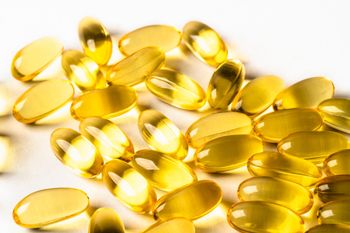
Curcumin Alleviates Depression Symptoms, New Study Shows
Australian researchers say subjects with atypical depression, a common type of major depression, seemed to benefit even more from the curcumin treatment.
Curcumin may relieve symptoms of major depression-especially atypical depression, a subtype of major depression-according to a new study1 in Australia.
The randomized, double-blind, placebo-controlled study, published in the
In the first four weeks, the treatment group showed improvements in depression symptoms according to the Inventory of Depressive Symptomatology scale, as well as improvements in most secondary outcome measures. In the second four weeks, the improvement compared to placebo became significant. Additionally, subjects with atypical depression seemed to benefit even more from the curcumin treatment.
Atypical depression is a unique form of major depression. Unlike other types of major depression, such as melancholic depression, which is associated with oversleeping, loss of appetite, and lack of mood improvement even if a positive event happens, atypical depression sufferers often experience insomnia, increased appetite or weight gain, fatigue, and the ability for mood to lift if something happy occurs. Subjects are also very sensitive to feelings of rejection. Atypical depression is quite common.
How does curcumin work on depression? The effects are likely partially due to the curcuminoid’s anti-inflammatory properties, the researchers surmise, at least when it comes to atypical depression, which is often associated with higher levels of inflammation. Other factors might also be at play. “Curcumin, the principal curcuminoid from the spice turmeric, influences several biological mechanisms associated with major depression, namely those associated with monoaminergic activity, immune-inflammatory and oxidative and nitrosative stress pathways, hypothalamus-pituitary-adrenal (HPA) axis activity, and neuroprogression,” the Journal of Affect Disorders researchers state.
Note that the researchers used a specific brand of curcumin in the study: BCM-95, a high-absorption curcumin ingredient from DolCas Biotech Inc., exclusively distributed in the United States by curcumin products brand EuroPharma. Curcumin ingredients often
“There is now increasing support for the antidepressant effects of curcumin, with a
References
- Lopresti AL et al., "Curcumin for the treatment of major depression: A randomised, double-blind, placebo controlled study," Journal of Affective Disorders, vol. 167 (October 1, 2014): 368-375.
- Sanmukhani J et al., “Efficacy and safety of curcumin in major depressive disorder: a randomized controlled trial,” Phytotherapy Research, vol. 28, no. 4 (April 2014): 579-585.
Editor-in-Chief
Nutritional Outlook magazine jennifer.grebow@ubm.com
Photo © iStockphoto.com/PicturePartners
Newsletter
From ingredient science to consumer trends, get the intel you need to stay competitive in the nutrition space—subscribe now to Nutritional Outlook.





